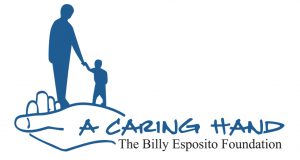The topic of grieving children is often a conversation stopper when I tell people I run a non-profit for grieving families. I get it. Children are supposed to be all about life and possibility – play dates, dreaming and make believe. But just as death enters the world of adults, it sometimes enters a child’s world. When it does, they need adults who can offer care and comfort to help them with a tough piece of life.
It’s scary to realize you can’t shield kids from everything bad. But paying attention and walking with, rather than away, from a grieving child, will make everyone feel better. Here are six reasons why they need us and how you can help:
1. Grieving children are everywhere but you can’t tell by looking.
One in 20 kids will experience the death of a parent or sibling before they finish high school so chances are a hurting child is hiding in plain sight. It’s easy to spot the kid with a broken leg. Loads of people rush over and come to his aid. But it’s hard to see when a child has a broken heart.
Once you “see” one, there are plenty of things you can do to help. But first, don’t be scared you will say or do the wrong thing. A good rule of thumb is the simpler the better: “I’m sorry”, “I knew your [insert name of the person] and he was [insert a fun, interesting, personal story].”
You can also reach out to the child’s likely stressed and overwhelmed caregiver to give a much-needed break. Offer to baby sit, throw a baseball with a child, take kids to the movies with your kids – not just the first week but over weeks and months when others have moved on – to show you did not forget.
2. Children want to know the truth.
Remember when you were little and your imagination ran wild and you were sure there was a monster under the bed? When people don’t tell grieving kids the truth they fill in the blanks with their imagination. And it’s usually worse than the reality and can even cause them to think what happened is their fault.
Being honest means listening (more than talking) to find out what’s on their mind, answering questions, and giving information appropriate for their age – the younger the child, the fewer and simpler the words will be than for an older child. Kids don’t necessarily need all the details but they do need to answer this question for themselves: “How did my special person die?” It might have been complicated, tragic or a medical mystery. But there is some version of the truth they can be told even if it’s “She was sick and the doctors tried lots of medicine but it didn’t fix it.”
3. Kids know more than you think. See #2 above.
Kids are egocentric beings. They think everything is about them. So they listen. They hover. They are within earshot when grownups are talking. They search for facts on the Web. They hear the neighbors whisper. Someone slips and says something by mistake. Kids quickly learn whom they can trust and seek out that person for help. When their world has been turned upside down, they need a person who can tolerate their feelings, settle things down, and reassure them of the good.
Do you spot the trend here? The child already knows something terrible happened, so your being open and available will be a relief. Some kids may shut down and not want to talk, but at least you’re setting the stage for if and when they’re ready.
4. Kids aren’t mini adults and their grief isn’t a mini grown-up version of grief.
Grief feelings come in as many different shapes and sizes as do children themselves. Kids may cry or be quiet, but they might also be angry, have tantrums, act out or have trouble in school. Some typical grief reactions we expect, like sadness and worry and anger. Some kids may struggle more and need extra care, but the majority are resilient in the right caring environment and even learn some great – if not way too early – life lessons about their own strength and the kindness of others.
When a child seems troubled or not herself, ask yourself if this could somehow be related to her grief. For example, can’t seem to get homework done? Stalling before going to sleep? For some children it would be called procrastination. But for a grieving child, some detective work may be in order: is it due to distracting thoughts about a special person? No matter what the change or problem in behavior or reactions, do your best to not rush to judge and punish. Get help from school or by consulting with others to figure out what part is grief. Proving some comfort and understanding rather than battling over homework or assignments or bedtime may be in order.
5. Children need role models.
Adults often feel they should protect their children from tough feelings or hide their true feelings. Trouble is, that teaches kids to hide their own feelings, causing grief to seep out sideways and every which way down the line. Pushing grief down like a jack-in-the-box means it may be a matter of time before it pops back out.
It is more helpful to kids if they can see real feelings and see how they can be managed. This means grieving adults can cry in front of or with their children (saving big cries for private time away from kids). Show that even though you will always miss the person and be sad at times, there is hope things will get better and. that there are ways to feel better – go for a walk, read, call a friend, write in a journal, draw. Kids need different outlets for their feelings. Help them find the one that works best.
6. Kids are different on the inside the second someone dies, and feel different from all their friends.
It’s great to get noticed as the home run hitter on the baseball team but not as “the kid whose Dad died.” Be the person who understands. It can help to find a place where they meet other grieving kids to swap stories, give and get advice, and feel less alone.
A caring presence, communicating by talking and listening, encouraging healthy coping, connecting the child to the special person by sharing and hearing memories, all matters in the life of a grieving child. It’s really not that hard after all.

Dr. Robin F. Goodman, Ph.D, A.T.R.-BC is a licensed clinical psychologist with expertise in trauma and bereavement. She is Executive Director of A Caring Hand-The Billy Esposito Foundation, which provides bereavement counseling and support for children and families in New York City. You can donate to A Caring Hand here.









